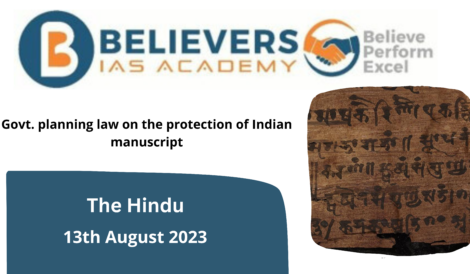Democracy in the Maldives
Context:
The Maldives, often overlooked in global affairs, recently made headlines with its presidential election. This small nation, composed of 1,192 islands in South Asia, sent a clear message: democracy is alive and well. The election’s key issues revolved around the concerns of voters, particularly the younger generation, focusing on their economic well-being, including employment, housing, improvements to the tourism industry, education, and healthcare. While some Western news agencies portrayed the election as a showdown between China and India, resulting in India’s defeat, this perspective ignores the complexities of how the Maldives operates.
Relevance:
GS-02 (Bilateral groupings and Agreements)
Prelims:
Maldives, Belt and Road Initiative
Mains Question:
How does the recent presidential election in the Maldives exemplify the functioning of democracy and the dynamics of power transition in the context of a small island nation, and what implications might this hold for the principles of democratic governance? (150 words)
Dimensions of the Article:
- Five Men, Shared Future
- Three Reasons for Defeat
- The Path Ahead
- Notes for New Delhi
Five Men, Shared Future:
- The Maldives has come a long way since the era of Maumoon Abdul Gayoom, who served as President from 1978 to 2008.
- The nation transitioned to a multiparty democracy under a new constitution. It saw leaders like Mohamed Nasheed, Mohamed Waheed Hassan, Abdulla Yameen, and Ibrahim Mohamed Solih.
- The most recent election, however, resulted in a shift of power to Mohamed Muizzu, the opposition candidate, who is backed by an alliance of the Progressive Party of Maldives and the People’s National Congress.
Three Reasons for Defeat:
- First, the Maldivian history reveals a pattern of not re-electing incumbents, as people feel empowered to change leadership through the democratic process.
- Second, the split within the ruling MDP party, coupled with Mohamed Nasheed’s departure, contributed to Solih’s defeat.The rivalry between Nasheed’s ambition and Solih’s attachment to the presidential chair went unresolved, resulting in a loss for Solih.
- Third, the ruling party struggled to counter the disinformation campaign launched by the opposition alliance, a campaign that unnecessarily brought geopolitics into a domestic election. The departure of Nasheed, a skilled communicator, left the MDP without its key figure.
The Path Ahead:
- With the election results, rapid developments are expected. Mohamed Muizzu, the President-elect, has requested the shifting of former President Yameen from prison to house arrest. Yameen, serving an 11-year sentence for corruption, is seen as a mentor to Muizzu. The dynamics between these men will be a significant aspect of Maldivian politics to watch.
- In the realm of external relations, the new administration faces choices, including whether to revert to Yameen’s ‘India Out’ campaign, continue the ‘India First’ policy, or adopt a calibrated approach that balances relations with key partners, especially China and India.
Notes for New Delhi:
- For India, the shifting political landscape in the Maldives presents both opportunities and challenges. People-to-people relations remain positive, bolstered by development work, community projects, and capacity-building programs for Maldivian youth.
- India plays a significant role in tourism, imports, and investments, and stands ready to provide assistance during emergencies.
- However, India can do more to strengthen regional cooperation, particularly in maritime security and the Blue Economy through forums like the Colombo Security Conclave. It should also consider expanding its diplomatic reach by inviting the Maldives as an observer in The Bay of Bengal Initiative for Multi-Sectoral Technical and Economic Cooperation (BIMSTEC). Additionally, allocating additional resources to foster mutual understanding and trust with the Maldives is crucial.
Conclusion:
The Maldives’ recent presidential election signifies the nation’s commitment to democracy and the need to address pressing economic concerns. Understanding the intricacies of the political landscape in this island nation is crucial to formulating effective foreign policy, especially for India. Cooperation, development, and diplomacy are essential for building strong and lasting relations with this small yet strategically important neighbor.



